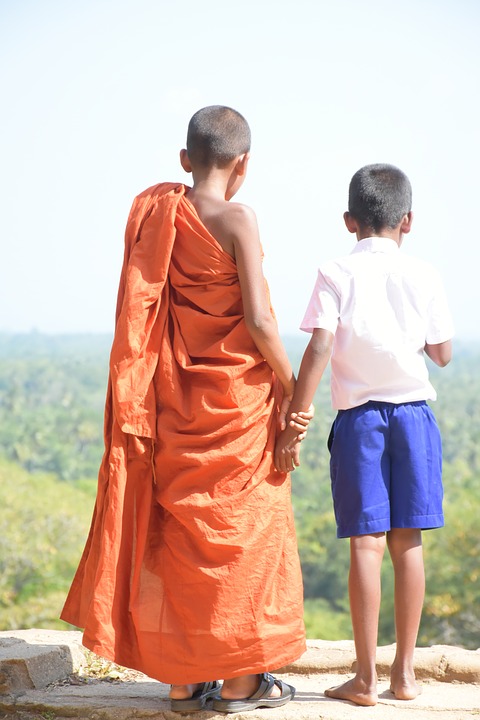Friendship is a pretty interesting subject in Buddhism. In Buddhism, you can be friends with anybody. However, you’re supposed to choose your friends wisely. Good friends are friends that are there for you and don’t give you any negative vibes. You’re supposed to look at people from within instead of how they look from the outside. In terms of friendship, Buddhism teaches us not to be superficial at all.
As long as they are good people in general, it doesn’t matter who you’re friends with. Buddhism encourages one to be open minded when making friends. That was what I was taught as a child raised as a Buddhist. Friends are people who can engage in all sorts of conversation and who show their virtues. If there is discernment, friends talk about it. Instead of butting heads over a disagreement, we calmly talk about it showing our sides of the issue.

In short, do not have “evil” people as friends. Evil people in Buddhism who people who lie, cheat, steal, and do other bad things for their own gain without putting other people into consideration. They have no respect for laws, customs, and cultures. Those are people you should not be friends with as it will drain your store of “wealth”. Keep in mind that there’s a different between “passionate” and downright “disrespectful”.
Passion is good in a friend
But keep in mind that disrespect is something different. People tend to mistake passion for disrespect and vice-versa. To find a good friend, you have to be able to read people. You must be aware of everything.
If a “friend” is downright disrespectful in terms of forcing his/her views on you constantly, then that person really isn’t your friend. When that is the case, you should end your friendship with him/her because it’s going to be draining on you. I’ve had to end plenty of friendships because people do change; some of them had changed for the worse.
Also, you shouldn’t let friendships take a toll on your mind, body, and spirit. A good friend wouldn’t do that to you. Buddhism is pretty open-minded but is realistic in the sense that there are some bridges not worth building at all. Do not lose yourself in order to keep a friendship. There are potential good friends in the future and you shouldn’t sacrifice them to keep a volatile friendship.

I’ve also had to end friendships with people that took a toll on my mind. I try to help them out but they threw it back in my face. Yet, they continued to plague me with their “problems”. They talk about how much they’re “losers”. But I told them the reason they are “losers” is because they choose to be which is true. I try to give them positive influence but they rejected it. And they continued to bother me with their problems which came redundant. I had to end my friendships with them.
Do not lose yourself when finding friends. That is what Buddhism teaches everybody.
Also, be yourself. Don’t try to be like anybody else. We have our own identities, goals, dreams, and aspirations. You shouldn’t have to sacrifice them for friends.
In short, accept people as they are. Accept them as human beings regardless of all the differences. It’s something that has guided me when making new friends and breaking off old friendships. Doesn’t matter who you make friends with as long as they are decent people.





